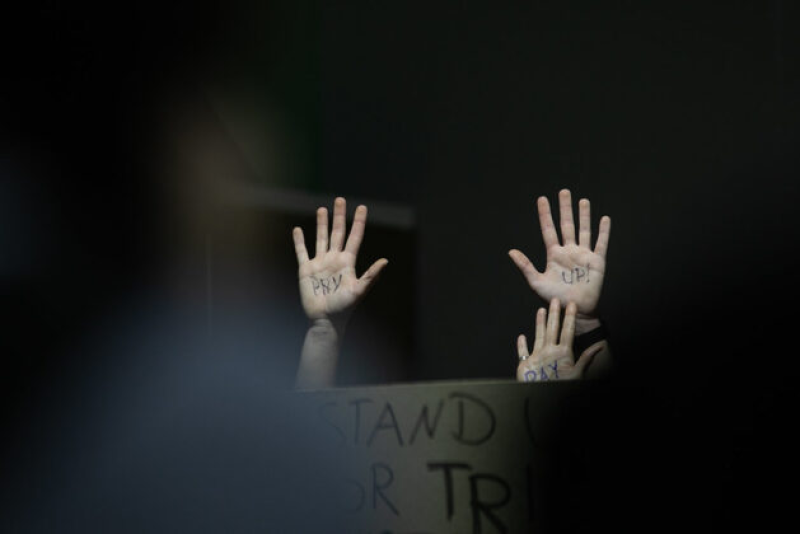- Bangladesh Faces $1.25 Billion Export Loss from US Tariffs |
- Israel Expands Gaza Assault as UN Warns of ‘Genocide’ |
- World Ozone Day Highlights Progress and Future Action |
- DG Health Services gives 12 directives to treat dengue cases |
- Stock market shows recovery as investors back: DSE chairman |
Indigenous Leaders Demand Justice in COP30 Climate Fund

Activists demand loss and damage reparations outside the hall where the COP29 negotiators were concluding their negotiations.
As climate-induced disasters devastate the Global South, nations are pressing wealthier countries to deliver on long-promised climate reparations through the Loss and Damage Fund. For Indigenous peoples, whose territories are both ecologically vital and highly vulnerable, these negotiations represent survival, sovereignty, and recognition as rights-holders in global climate governance.
Although the fund was operationalized at COP29 in Baku, developing countries say pledges of around USD 741 million fall drastically short of the trillions needed to recover from climate devastation. Indigenous communities, whose livelihoods rely on thriving ecosystems, are among the hardest hit.
Paul Belisario, Global Coordinator for the International Indigenous Peoples Movement for Self-Determination and Liberation (IPMSDL), stressed that Indigenous stewardship of biodiversity and carbon sinks is essential. “Without recognizing Indigenous people’s right to govern and care for their land, we cannot fully address the climate crisis,” he said.
UN Secretary-General António Guterres echoed these concerns, noting that while the creation of the fund is a victory, its capitalization is far from adequate. Indigenous leaders argue that exclusion of traditional knowledge from decision-making further undermines climate action.
Coalition blocs such as the G77 and AOSIS remain vocal, criticising developed countries for evading responsibilities. Indigenous advocates also fear that funds may not reach remote or marginalized communities due to bureaucracy and political isolation.
Recent developments, including an International Court of Justice opinion holding states legally accountable for climate harm, open new pathways for restitution, ranging from land recovery to financial compensation.
In the run-up to COP30 in Belém, Indigenous groups in Brazil and Colombia have demanded stronger land rights, deforestation controls, and co-leadership in negotiations. While conference organisers proposed a “Circle of Indigenous Leadership,” many leaders dismissed this as insufficient, calling instead for genuine co-governance.
For Indigenous leaders, climate finance is not charity but justice. As Belisario put it, “This is historical justice.” Without Indigenous leadership in fund distribution, many fear the aid will remain ineffective.
Activists emphasise that true accountability must begin locally. As the FSC Indigenous Foundation concluded: “Climate justice will only be possible when Indigenous Peoples are recognized as rights-holders and partners in decision-making.”

